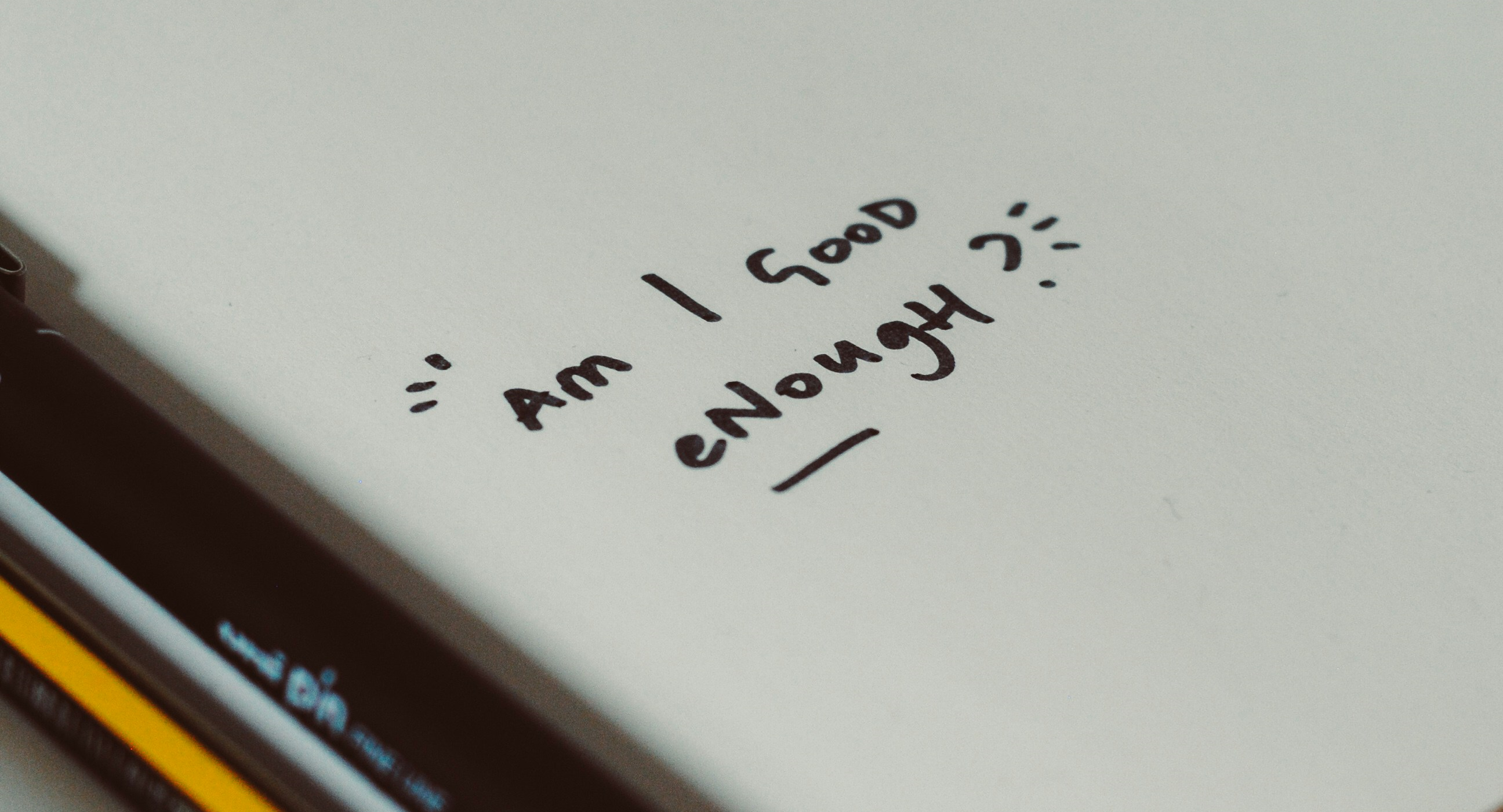Being a man
We exist in a world that constantly measures our worth by what we accomplish. The whole thing can be a lot to process, especially if you’re very ambitious or the type of person who constantly measures personal success against your peers. That crushing feeling when you look at your goals and see the gap between them and your reality hurts—deeply.
I’ve sat across from countless people who speak about themselves with such harshness when they feel they’ve failed. They use words they would never say to someone they love.
This disconnect between who we are and what we achieve creates suffering that seeps into every corner of our lives. But your productivity or achievements don’t measure your worth, and it’s certainly not measured by the accomplishments of others.
Learning to love yourself
By yourself, regardless of anything good or excellent you’ve ever accomplished, you are worthy of love and carry incredible value.
But talk is cheap, yes? Almost impossible not to berate yourself when you’re not doing enough. So, let’s do more than talk. Here are seven ways to nurture self-love even when achievement feels distant:
Separate your worth from your work
Your achievements aren’t you. They’re things you do, not who you are. Start noticing when you tie your identity to outcomes.
When you catch yourself thinking “I’m a failure” after something doesn’t work out, try reframing it as “That attempt didn’t succeed” instead.
Practice saying: “I am not my accomplishments. I have inherent value that exists independently of what I achieve.”
Another exercise that can help:
Try writing down five qualities you possess that have nothing to do with achievement – perhaps your kindness, sense of humor, or how you listen to friends.
Whether you succeed or not, these traits exist and are most likely the things people will remember about you when you’re no longer around.
Honor your efforts, not just outcomes
We often dismiss the journey when the destination disappoints us.
A client once said she felt like “nothing” after not getting into her dream graduate program. When we unpacked the work she’d put in – late nights studying, personal growth, new skills acquired – she realized she’d gained tremendous value regardless of the outcome.
That is what it’s all about!
Each evening, note one effort you made today. Maybe you tried a new approach to a problem, showed up despite feeling discouraged, or didn’t give up even when you had enough reasons to.
These efforts matter deeply, so add them to your achievement scorecard.
Redefine what “achievement” means
Our culture narrowly defines achievement through career advancement, financial success, or public recognition. But we very quickly forget the quiet victories: the days you managed your anxiety better, the difficult conversation you finally had, and the boundaries you set.
Create your own achievement list that honors growth, not just external markers of success. Include things like “I asked for help when I needed it” or “I sat with uncomfortable feelings instead of avoiding them.”
Practice self-compassion during setbacks
When I conversed with a young father who lost a job opportunity, his self-talk became brutal. We worked on speaking to himself as he would to his daughter when she struggled. He’d never tell her that she’s worthless because she’s struggling with learning to ride a bike.
It’s just a bike; he knows she’ll improve with practice. And even if she didn’t, it still wouldn’t matter.
Yet, we lose perspective like that when it’s our turn. A simple shift, yes, but treating yourself with the gentleness you’d offer a loved one can transform your relationship with yourself. Self-compassion is better and far more capable of extracting your best than self-criticism.
When facing disappointment, place your hand on your heart and say: “This is really hard right now. Many people feel this way. How can I be kind to myself in this moment?”
Seek connection, not comparison
Social media makes it easy to measure ourselves against carefully curated highlights of others’ lives. One mom I worked with felt “behind” because her business wasn’t growing as quickly as her friend’s.
What helped wasn’t working harder but connecting authentically with other entrepreneurs who shared both struggles and successes.
Reach out to someone you trust and share your real experience – not the polished, IG-worthy version. Ask about their struggles, too. This vulnerable exchange often reveals that most people feel inadequate sometimes.
Exchanges like that remind you that you are not a failure. More than that, they create space for genuine connection that breaks the isolation of perceived failure.
Find meaning beyond achievement
When work or goals don’t fulfill us, we need other sources of meaning. A recent client facing repeated career setbacks found unexpected joy in volunteering at a community garden.
The connection to others and contributing to something larger than himself provided meaning that no promotion ever had.
Reflect on when you’ve felt most alive or content. These peak moments rarely come from adding another credential to your LinkedIn profile or finally reaching six figures.
They’re the Sunday afternoons when you forget about time while painting with your niece. The belly laugh shared with friends around a campfire. That rush when your mediocre bowling team finally clinched the neighborhood championship because you all stopped overthinking and just had fun.
Work on moving towards a moment like that outside of work. Your life will feel a lot more meaningful. It’s nothing magical; it’s just how we are wired.
Embrace the imperfect present
We often withhold self-love until we reach some future state of accomplishment. “I’ll be happy with myself when…” becomes a moving target that keeps self-acceptance perpetually out of reach.
Practice saying: “In this moment, exactly as I am, I am enough.” It might feel uncomfortable or even false at first. That’s okay. Keep saying it anyway, especially when you don’t believe it.
Every morning, name one thing you appreciate about yourself today—not the future improved version of you, but exactly who you are right now.
Appreciating life as it is now is, hands down, one of the most mentally rewarding exercises. From the confines of your thoughts, it might look like your life is less than, but if you stepped out for a minute and looked at your life from an external future perspective, you’d probably enjoy what you see.
Life is a tragedy when seen in close-up, but a comedy in long-shot. We must learn to bring that comedy perspective closer.
Therapist Lehi
Look, the world’s already tough enough. You don’t need to be your own worst critic. Life will provide plenty of challenges without you piling on additional judgment.
Almost everyone points to themselves when I ask clients who’s hardest on them. We reserve our harshest standards, most cutting remarks, and least forgiving attitudes for the one person who needs our kindness most.
The truth is, you’re doing better than you think. And even when you’re not, you still deserve your own compassion. Because if we can’t offer ourselves grace when we fall short, we’re adding suffering to suffering.
What small act of gentleness can you offer yourself today? Not when you’ve achieved more or become “better” – but right now, exactly as you are?



